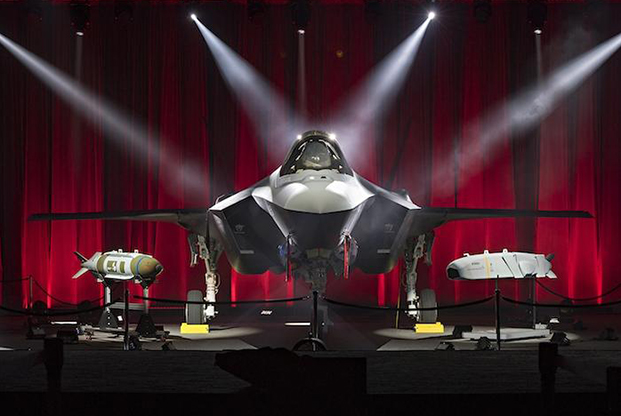A bipartisan pair of U.S. senators are urging the Trump administration to impose economic sanctions on Turkey over buying and activating Russian S-400 Triumf air defense systems, concerned that Turkey is allowing Russia to access sensitive data on NATO aircraft.
In an Oct. 7 letter to Secretary of State Michael R. Pompeo, Senate appropriators Chris Van Hollen (D-Md.) and Sen. James Lankford (R-Okla.) raised concerns that Turkey may have used its S-400s “to detect U.S.-made F-16 fighter jets returning from the Eunomia exercise” held in August.
The exercise involving Cyprus, France, Greece, and Italy was a “response to Turkey’s unwarranted aggression in the Eastern Mediterranean,” the lawmakers said. Turkey had sent oil exploration vessels into disputed areas around Cyprus.
If the S-400 was used to surveil American F-16s, it would be one of the first publicized instances that Turkey has wielded the air defense system’s radar against a U.S. asset. Deliveries of the S-400 to Turkey began in July 2019.
“Last year, Turkish F-16 jets flew over Ankara as a part of a test of the S-400, which administration officials have indicated could allow Russia a backdoor to spy on NATO allies,” wrote the senators, who both serve on the powerful Senate Appropriations Committee. “Turkey’s recent activation of the S-400 system to detect the U.S. F-16 underscores our grave concerns about Russia’s ability to access sensitive data.”
The senators asked Pompeo to confirm whether the S-400 was used to find F-16s returning from Eunomia, and whether the air defense system works with NATO’s Link 16 data-sharing system.
“Could this integration enable Russia to gather information on NATO allies?” Van Hollen and Lankford asked.
The two requested answers by Oct. 14, and urged Pompeo “to impose sanctions on Turkey as required by law.”
They said it is clear that Turkey “has no intention of reversing course and divesting” of the S-400, as the U.S. and NATO have insisted, and Ankara should be punished under the Countering America’s Adversaries Through Sanctions Act (CAATSA).
A “sense of Congress” act in 2019 demanded that President Donald J. Trump enforce CAATSA sanctions on Turkey, but the administration has not complied. Van Hollen has warned that Congress will take action if the executive branch does not.
A press release accompanying the letter said Trump’s delays “would further endanger the security of NATO operations.”
Though the U.S. and its partners on the Lockheed Martin F-35 Joint Strike Fighter program have expelled Turkey amid security concerns, and wanted to replace Turkish F-35 component suppliers by spring 2020, the Pentagon now anticipates Turkey will still be supplying F-35 parts in 2023.
The “slow pace” at which the Pentagon is getting Turkish companies out of the F-35 supply chain “has no doubt emboldened [Turkish President Recep Tayyip Erdogan],” according to the senators.
Sitting and previous commanders of NATO, U.S. European Command, and U.S. Air Forces in Europe have said Russia would gain damaging knowledge of the F-35’s stealth systems if Turkey was allowed to operate its own fleet of the jets near the S-400.
Turkey paid for six F-35s that have not been delivered because of the issue. The U.S. will acquire eight F-35A jets previously bound for Turkey, which had planned to buy at least 100 of the fighters.
